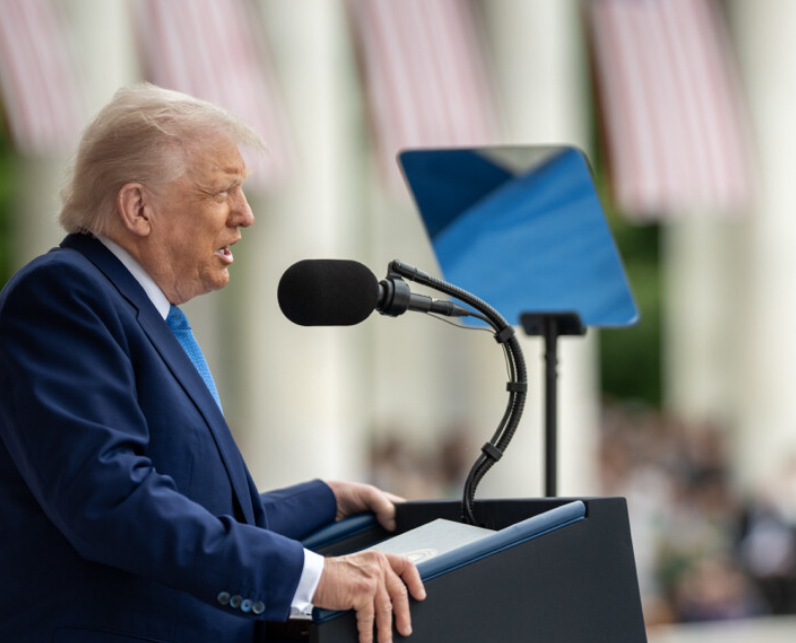The LA riots have intensified following federal immigration raids and a heated political standoff between President Donald Trump and California Governor Gavin Newsom. With National Guard troops now deployed in Los Angeles and widespread protests gripping the state, tensions between state and federal authority are reaching a breaking point. This blog unpacks the ideological divide, Latino voter shifts, and the historical context behind the latest escalation in LA.
LA Riots Escalates
As tensions rise across Los Angeles, California, amid federal immigration raids and street protests, a deepening political rift has reemerged between President Donald Trump and California Governor Gavin Newsom. Political analyst and historian Rich Rubino shares his views and fundamental ideological, legal, and electoral divides between the two administrations, and the broader national implications.
Donald Trump and Gavin Newsom have clashed publicly for years. Although Trump previously suggested that they once shared a cordial relationship during his earlier term, Newsom’s progressive policies on immigration and state autonomy have positioned him as one of Trump’s most vocal opponents.
California, a state that has consistently voted Democrat in presidential elections since 1988, continues to be a stronghold of liberal politics. For Newsom, who cannot seek re-election in 2026, opposing Trump’s immigration enforcement policies shores up support from immigrant communities and the broader Democratic base. For Trump, these federal crackdowns reinforce his populist image and appeal to a Republican base hungry for strong immigration enforcement.
Immigration has been a cornerstone of Trump’s political brand—especially during his successful 2024 campaign. Trump’s base overwhelmingly supports aggressive enforcement, including the use of ICE operations and border security measures.
President Trump posted on Social truth: “Great job by the National Guard in Los Angeles after two days of violence, clashes and unrest. We have an incompetent Governor (Newscum) and Mayor (Bass) who were, as usual (just look at how they handled the fires, and now their VERY SLOW PERMITTING disaster. Federal permitting is complete!), unable to to handle the task. These Radical Left protests, by instigators and often paid troublemakers, will NOT BE TOLERATED. Also, from now on, MASKS WILL NOT BE ALLOWED to be worn at protests. What do these people have to hide, and why??? Again, thank you to the National Guard for a job well done!”
But….Governor Gavin Newsom Replied “The California National Guard wasn’t even deployed in Los Angeles yet when this rant was posted. Facts matter.”
On the other hand, Democrats generally adopt a more humanitarian approach, often favoring terms like “undocumented immigrants” rather than “illegal immigrants.” However, not all Democrats align perfectly with this softer stance. Pennsylvania Senator John Fetterman, for example, has argued that the party needs to take a tougher position on immigration to win back working-class voters and regain electoral ground.
Rubino pointed out that some Democrats believe their weak stance on border issues contributed to their failure to reclaim the House or retain the presidency in 2024. This sentiment is driving certain centrist Democrats to inch rightward on immigration, especially those representing Trump-won districts.
Among Republicans, there’s a near-unified stance on stricter immigration enforcement. From moderates like New York’s Mike Lawler to staunch conservatives such as Tennessee’s Tim Burchett, the rhetoric is largely consistent.
Still, some moderate voices within the GOP—such as Vermont Governor Phil Scott—have expressed concerns about the overreach of ICE raids and their impact on civil liberties.
Importantly, Trump’s appeal among Latino voters has grown. In areas of South Texas, he swung the vote by nearly 20 points compared to Joe Biden. This trend is creating anxiety within the Democratic Party, as they can no longer count on Latino voters as a monolithic base. Democratic lawmakers like Congressman Henry Cuellar from Texas are now facing increased pressure to recalibrate their positions on immigration.
Governor Newsom recently decried federal plans to deploy active-duty Marines in California, labeling it “deranged behavior.” This confrontation highlights the delicate balance of power between the federal government and individual states.
The president can deploy the National Guard under the Insurrection Act of 1807—a power used sparingly in U.S. history. Rich Rubino cited historical examples:
- In 1957, President Dwight D. Eisenhower federalized the National Guard to enforce school integration in Little Rock, Arkansas.
- In 1962, President John F. Kennedy sent troops to ensure James Meredith could enroll at the University of Mississippi.
- In 1992, President George H.W. Bush deployed the National Guard to Los Angeles to quell riots following the Rodney King verdict.
While Trump is not currently invoking the Insurrection Act, his administration’s law enforcement posture is raising similar concerns. The deployment of troops in Los Angeles and across California has alarmed civil rights advocates and state officials alike.
Lawmakers opposed to Trump’s measures have limited direct power. However, they can use their platforms to galvanize public opinion, especially in districts with large migrant populations.
Their most viable option lies in electoral change—urging constituents to vote for candidates aligned with a more compassionate approach to immigration and protest management. With only a slim chance of retaking the Senate in the short term, Democrats are looking toward the 2028 elections as a long-term goal for reversing Trump’s immigration policies.
Rubino concluded by noting the ideological irony of the current situation. Traditionally, Republicans have championed states’ rights and Democrats have favored federal authority. But now, Trump’s Republican administration is exerting federal control in a blue state—flipping the usual script.
This ideological reversal has complicated traditional conservative and liberal talking points, making immigration and protest response a uniquely volatile and pivotal issue in U.S. politics today.
Disclaimer: This article is a synthesis based on a live news discussion and commentary. The opinions expressed are those of political analysts and do not necessarily reflect the views of this platform.

